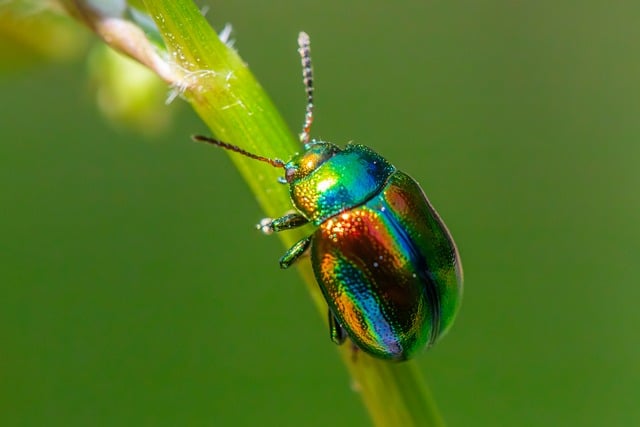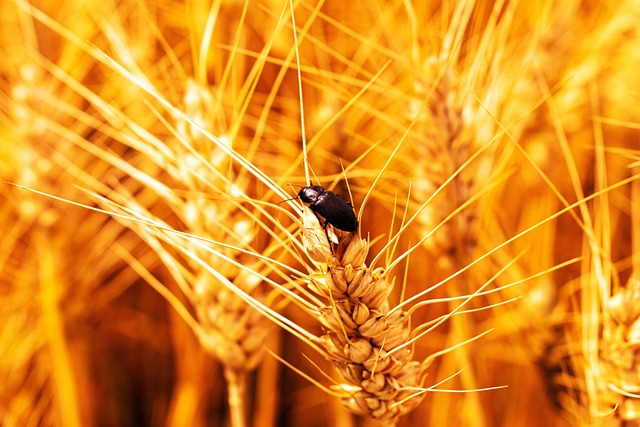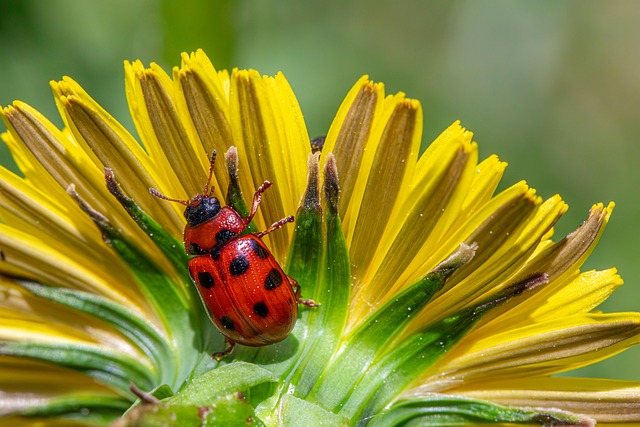In Castle Rock, sustainable pest management for vegetable gardens focuses on pet safety, avoiding chemical risks. Organic treatments like essential oils, plant-based insecticides, and beneficial insects are preferred. Integrated Pest Management (IPM) strategies include companion planting, regular monitoring, and using pet-safe products like neem oil and diatomaceous earth. Maintaining a balanced ecosystem through weeding and sanitation further reduces pest issues naturally.
In Castle Rock, sustainable pest management is essential for both healthy pets and bountiful vegetable gardens. This guide explores pet-safe treatments that harmonize with nature, ensuring your loved ones and produce remain unharmed by pests. We delve into understanding the unique needs of vegetable gardens, adopting sustainable practices, and offering practical tips for selecting effective yet gentle solutions. By implementing these strategies, you can create a harmonious ecosystem free from harmful chemicals.
- Understanding Safe Pest Control for Pets and Vegetables
- Sustainable Practices for Effective Vegetable Garden Protection
- Pet-Friendly Solutions: Tips for Choosing the Right Treatments
Understanding Safe Pest Control for Pets and Vegetables

When it comes to sustainable pest management for vegetable gardens in Castle Rock, prioritizing pet safety is non-negotiable. Many conventional pest control methods use chemicals that can be harmful to both pets and humans if not applied correctly. Fortunately, there are numerous pet-safe alternatives available today that effectively manage pests without compromising the health of your furry friends or the environment.
Organic and natural treatments, such as essential oils, plant-based insecticides, and beneficial insects, offer powerful solutions for protecting your vegetable garden from pests. These methods not only reduce chemical exposure but also promote a balanced ecosystem. By understanding and implementing pet-safe pest control practices, Castle Rock residents can enjoy bountiful vegetable gardens while ensuring the well-being of their beloved pets.
Sustainable Practices for Effective Vegetable Garden Protection

In Castle Rock, sustainable pest management for vegetable gardens is a growing trend among eco-conscious gardeners. Instead of relying heavily on chemical pesticides, which can be harmful to both plants and beneficial insects, integrated pest management (IPM) strategies focus on long-term solutions that minimize environmental impact. One key practice is companion planting, where certain plants are grown together because they naturally deter pests or encourage the growth of others. For example, marigolds and lavender repel aphids while attracting helpful bugs like ladybugs.
Another sustainable approach involves regular monitoring and early intervention. Gardeners should regularly inspect their crops for signs of pest activity, such as chewed leaves or webbing. By identifying problems early, they can take targeted action using pet-safe treatments like neem oil, diatomaceous earth, or insecticidal soap. These natural alternatives are effective in controlling pests while being gentle on pets, making them ideal for vegetable gardens where edible produce is grown.
Pet-Friendly Solutions: Tips for Choosing the Right Treatments

When it comes to sustainable pest management for vegetable gardens in Castle Rock, choosing pet-safe treatments is a priority for responsible gardeners. Integrating pets and plants requires careful consideration as some common pest control methods can be harmful to animals. Look for options that are specifically labeled as pet-friendly and natural, avoiding those with toxic chemicals or ingredients that might attract or cause harm to your furry companions.
Researching active ingredients and product reviews is key. Safe alternatives include organic compounds like neem oil and diatomaceous earth, which are effective against various pests without posing risks to pets when used correctly. Always follow application instructions carefully and keep treated areas away from pet habitats. Additionally, maintaining a healthy garden ecosystem through regular weeding, proper sanitation, and attracting beneficial insects can significantly reduce pest pressures naturally.
In light of the above discussions, it’s clear that adopting sustainable pest management practices is not only beneficial for our vegetable gardens in Castle Rock but also for our beloved pets. By understanding safe pest control methods and choosing pet-friendly treatments, we can create a harmonious environment where both our vegetables and pets thrive. Let’s commit to eco-conscious decisions and ensure a healthier, more peaceful outdoor space for all.
